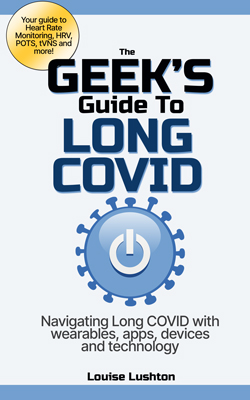When confronted with a chronic or unexplained health problem like Long Covid, it’s tempting to try experimental treatments. You may be feeling frustrated and overwhelmed by the lack of medical information or official help available to you. This means you’re vulnerable to scams or unproven treatments. There’s a lot of people out there making unsubstantiated claims and they’re lining up to take your money. Be wary and be skeptical.
A few things you may encounter while researching Long Covid:
Ivermectin, Hydroxychloroquine, The I-Recover Protocol and the FLCCC alliance
Throughout the pandemic, Ivermectin has been promoted by some as a treatment for acute COVID-19 and Long Covid. Ivermectin is an anti-parasitic (de-worming) drug often used on animals. The evidence for its effectiveness is weak and the World Health Organization, U.S. Food and Drug Administration, and European Medicines Agency do not recommend its use unless in official clinical trials. Similarly, the antimalarial drug Hydroxychloroquine has also been suggested as a treatment but there’s no evidence that it works. Again, the WHO advises against its use.
The FLCCC (Front Line COVID-19 Critical Care) Alliance is a group of physicians and doctors who are advocating for Ivermectin and Hydroxychloroquine use. They do not suggest getting vaccinated against COVID-19 as a treatment. One of their doctors, Pierre Kory, had a research article retracted by the Journal of Intensive Care Medicine after it was found to have misreported statistics that suggested their treatment protocol was effective.
Advertisement
The Geek’s Guide To Long Covid is available as an ebook!
You’ll find a comprehensive guide to using wearables, apps and technology to cope with Long Covid. It offers detailed instructions on pacing, heart rate monitoring, HRV, POTS, deep breathing, tVNS, air purifiers, CO2 monitors and lots more.
Available from Amazon
The FLCCC lists a number of treatment protocols on their site including the I-Recover protocol for Long Covid. Along with Ivermectin, the treatment recommends taking a cocktail of drugs including low dose naltrexone, prednisone, melotonin, spironolactone, fluvoxamine, atorvastatin, plus vitamin D, C and a swathe of other supplements. The protocol has not been tested in clinical trials. It is problematic because it suggests a one-size fits all approach and does not take individual circumstances into account. The dosages in the protocol may be excessive in some cases and the drugs may interact or be contraindicated for some people. Dosing with such a large variety of drugs/supplements also makes it difficult to tell what works and what doesn’t. Ivermectin aside, it would be best to discuss the drugs listed in the I-Recover protocol with your doctor.
Update: 19 August 2022: This study: Randomized Trial of Metformin, Ivermectin, and Fluvoxamine for Covid-19 found “None of the three medications that were evaluated prevented the occurrence of hypoxemia, an emergency department visit, hospitalization, or death associated with Covid-19.”
“Adrenal Fatigue”
Alternative medicine often mentions “adrenal fatigue”. This is a theory that our adrenal glands become overworked by stress and stop producing the hormones we need, including cortisol. This is used to explain a very wide variety of symptoms including ongoing fatigue and a weak immune system. To date, the existence of this illness is unproven. Studies attempting to investigate it have produced conflicting results and the methodology has been questioned. (Ross, 2018; Cadegiani et al. 2016)
More info here.
Neurolinguistic Programming (NLP)
NLP claims that it can alter behaviour by reprogramming unconscious thought. It’s a collection of behavoural strategies, ways of thinking and speaking and sometimes hypnosis. It’s often promoted as a business tool but elements of it stray into alternative medical treatments. There’s very little scientific evidence that NLP works and it’s typically offered by “coaches” not psychologists or medically trained people. It usually costs money.
More info here.
Brain Retraining Programs
A number of programs claim that you can recover through “brain retraining”. Though often couched in scientific and neurological terms, the basic idea is that your brain has developed unconscious patterns that lock you into unhealthy behaviours and cause you to feel sick. They claim that you can retrain your brain (your amygdala, your nervous system, etc) and overcome the ingrained patterns of sickness. Sometimes these programs make use of NLP or other psychological therapies, others focus on breathing and meditation. The programs say they can treat a wide variety of illnesses.
Unfortunately there’s not a lot of scientific research to back them up, though occasionally these programs produce their own studies as proof of their efficacy. If a program doesn’t work for someone, they tend to claim it’s because the patient didn’t try hard enough or didn’t spend enough time doing it. Some programs have aggressive marketing techniques and affiliate programs which means you’ll see a lot of people pushing the programs because they are receiving monetary benefit. Be wary.
Read more here.
The Lightning Process
If you want to know the specifics of what the Lightning Process is, you’ll need to pay them money. There is secrecy surrounding this therapy. It seems to be a mix of neurolinguistic programming, meditation, and positive thinking. There’s very little scientific research to back it up; it has not been tested in randomized controlled trials. The National Institute for Health and Care Excellence (NICE) in the UK now officially warns against The Lightning Process as a treatment for ME/CFS. The British Advertising Standards Board said its website was misleading. Most websites discussing ME/CFS do not recommend it. Do a search for “the lightning process” + skeptic.
Read more here and here.
Homeopathy
Homeopathy was invented in the 19th century and works on the idea that “like cures like”. It essentially posits that a substance can retain therapeutic properties after being diluted in water millions of times over. Indeed, homeopathy says the more dilute it is, the more “potent” it is. Scientific evidence for it is very scarce. Be aware that some chemists carry homeopathic products on their shelves that look similar to products with researched active ingredients (e.g. melatonin) so check the label and perhaps buy something else.
Read more here.
Naturopathy
Naturopathy is all about only using “natural” treatments. It hinges on the idea that the body can heal itself and often focuses on the role of the immune system in maintaining health. Typically naturopaths are keen on “boosting” or strengthening the immune system through supplements. While naturopathy encourages good health through good nutrition, rest, massage and a healthy lifestyle, it often relies on unproven treatments / diets or unscientific ideas. If you use a naturopath, take the time to look into the research behind what they’re advocating. It may be worth pursuing or it may be a waste of your time and money.
“Removing Toxins” and “Detox Diets”
Alternative therapies often talk about “removing toxins” from the body and recommend “detoxes” in the form of diets, supplements or other treatments. The problem with this is that it’s often not made clear what the toxins are, where they may have come from or how the particular therapy will remove it. A “toxin” can be any number of things: industrial pollutants, toxic chemicals (e.g. lead or mercury), drugs like heroin or alcohol, bacterial toxins or byproducts from bodily processes. Yet most detox programs are very vague about what specific toxins they are targeting.
Typically, our body does its own job of “detoxing” by filtering the blood through the liver and kidneys. There’s not a lot of scientific research to suggest that detox therapies improve this process. Again, be wary and look at Pubmed to see if there’s any scientific research to back up claims of “removing toxins”.
Read more here.
Social Media
While social media can be a great place to find support and resources, it can also be rife with misinformation, vague anecdotes and people pushing cures and treatments to make money. You’ll find plenty of personal stories of what works and what doesn’t. Keep your skeptical hat on when reading and engaging with social media posts. Some of it can be useful, some of it may be a waste of your time.
Research
Ross IL, Jones J, Blockman M. We are tired of ‘adrenal fatigue’. S Afr Med J. 2018 Aug 28;108(9):724-725. doi: 10.7196/SAMJ.2018.v108i9.13292. PMID: 30182895
Cadegiani FA, Kater CE. Adrenal fatigue does not exist: a systematic review. BMC Endocr Disord. 2016 Aug 24;16(1):48. doi: 10.1186/s12902-016-0128-4. Erratum in: BMC Endocr Disord. 2016 Nov 16;16(1):63. PMID: 27557747; PMCID: PMC4997656.

